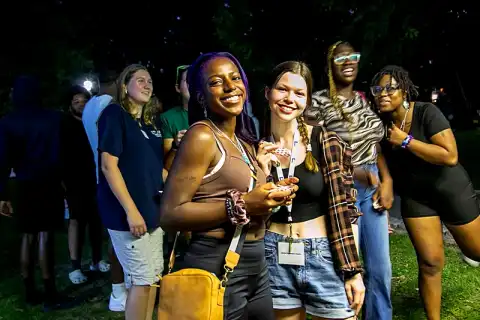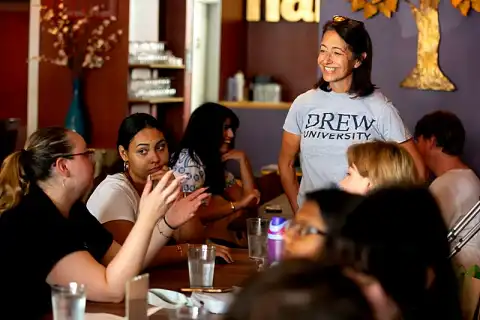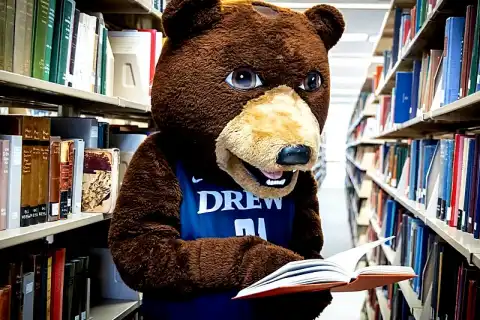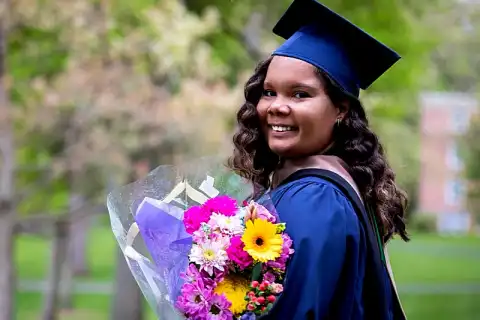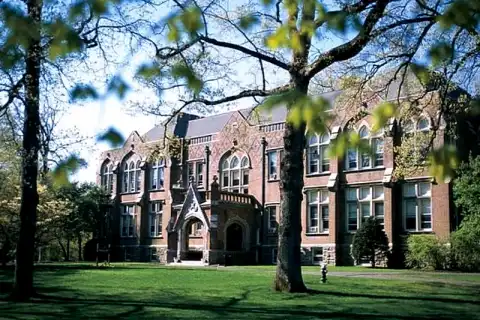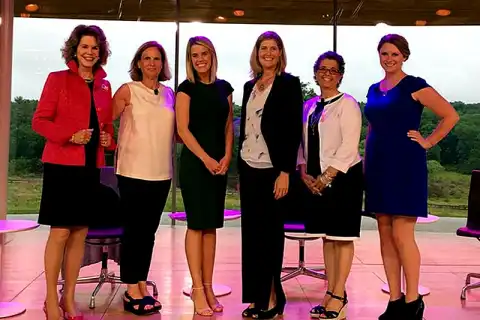Master of Letters - Arts and Letters
- 1 year
- Duration
- 37,660 USD
- Price
- Rolling admission
- Start
- Rolling admission
- Deadline
- Master
- Degree
- Campus
- Format
- Madison / USA
- Location
- Drew University
- School
Program description
The multidisciplinary Arts and Letters curriculum acknowledges that a comprehensive foundation in the humanities provides essential intellectual and personal growth for students to be aware of current challenges and enduring inquiries arising globally.
Cutting-edge Research
In collaboration with an adviser, students in the program may opt to compose a Master’s thesis grounded on scholarly original research or select a non-thesis, coursework-only pathway.
Concentrations for Master of Letters (M.Litt.)
M.Litt. applicants must complete a focus of four courses, which should be chosen to provide coherence and interrelation. M.Litt. students are required to declare a concentration before enrolling in their sixth term. Certain A and L courses may fulfill various specializations, contingent upon content and consultation with the Program Director. Students are required to complete courses in a minimum of three distinct fields of study. The available concentrations include:- Literary Studies
- Fine Arts and Media Studies
- Historical Studies
- Religious Studies
- Teaching at the Two-Year College
- Teaching Writing
- Writing
Program structure
I. Required Course
- Liberal Studies: What They Are, What They Do
II. Concentration
A. Literary Studies
Selected from AREL and by Program Director approval.
B. Fine Arts and Media Studies
Selected from ARFA and by Program Director approval.
C. Historical Studies
Selected from ARHI and from HIST by Program Director approval.
D. Studies in Religion
Selected from ARSP, and from REL or Theological School offerings by Program Director approval.
E. Teaching in the Two-Year College (12 credits)
- Introduction to the Two-Year College
- Two Year College Internship
- Two Arts and Letters courses in one’s teaching specialization
F. Writing
Selected from ARWR and by Program Director approval.
G. Teaching Writing
III. Electives
The remainder of an M.Litt. student’s coursework should be selected from a minimum of two other areas of concentration, and in consultation with the Program Director, to achieve breadth and depth in interdisciplinary training. Students must take courses with a minimum of three different professors.
IV. Advanced Study
Thesis Track:
- Master Project/Thesis
Coursework-Only Track:
- One additional elective from existing Arts and Letter courses
Price
Tuition fee: 37,660 USD
Requirements for applicants
Academic entry requirements
- Undergraduate degree
- Minimum GPA equivalent: 3.0
English language requirements
- TOEFL iBT: 80 (18 subscores)
- IELTS: 6.5 (6.0 in all subscores)
- Duolingo: 105
- Academic English: Level 6
About the university
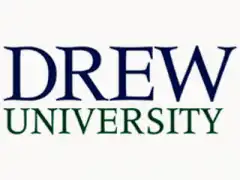
Drew University was founded in 1867 and celebrated its sesquicentennial in 2017. The university consists of three schools: the College of Liberal Arts, the Theological School and the Caspersen School of Graduate Studies. Drew is situated on a lovely, forested campus in Madison, New Jersey, a flourishing little town near New York City.
Drew's one-of-a-kind, cutting-edge path to an undergraduate degree, Launch platform, guarantees that every student graduates with a purpose, sought-after transferable skills, a mentor network, and an experience-based résumé. Drew's distinctive, immersive learning experiences include professionally-mentored scientific research in RISE and DSSI, volunteer and community-based opportunities through the Center for Civic Engagement, making industry connections over seven semesters in New York City, and exploring the world through eye-opening international study abroad trips.
Drew University's two graduate schools provide ten master's and four doctorate degrees. There are several certificate programs available. All programs are built on Drew's well-known dedication to faculty-student mentoring, chances for out-of-classroom experiential learning, and fostering a strong intellectual and global community, with many programs available in hybrid or totally online formats.
